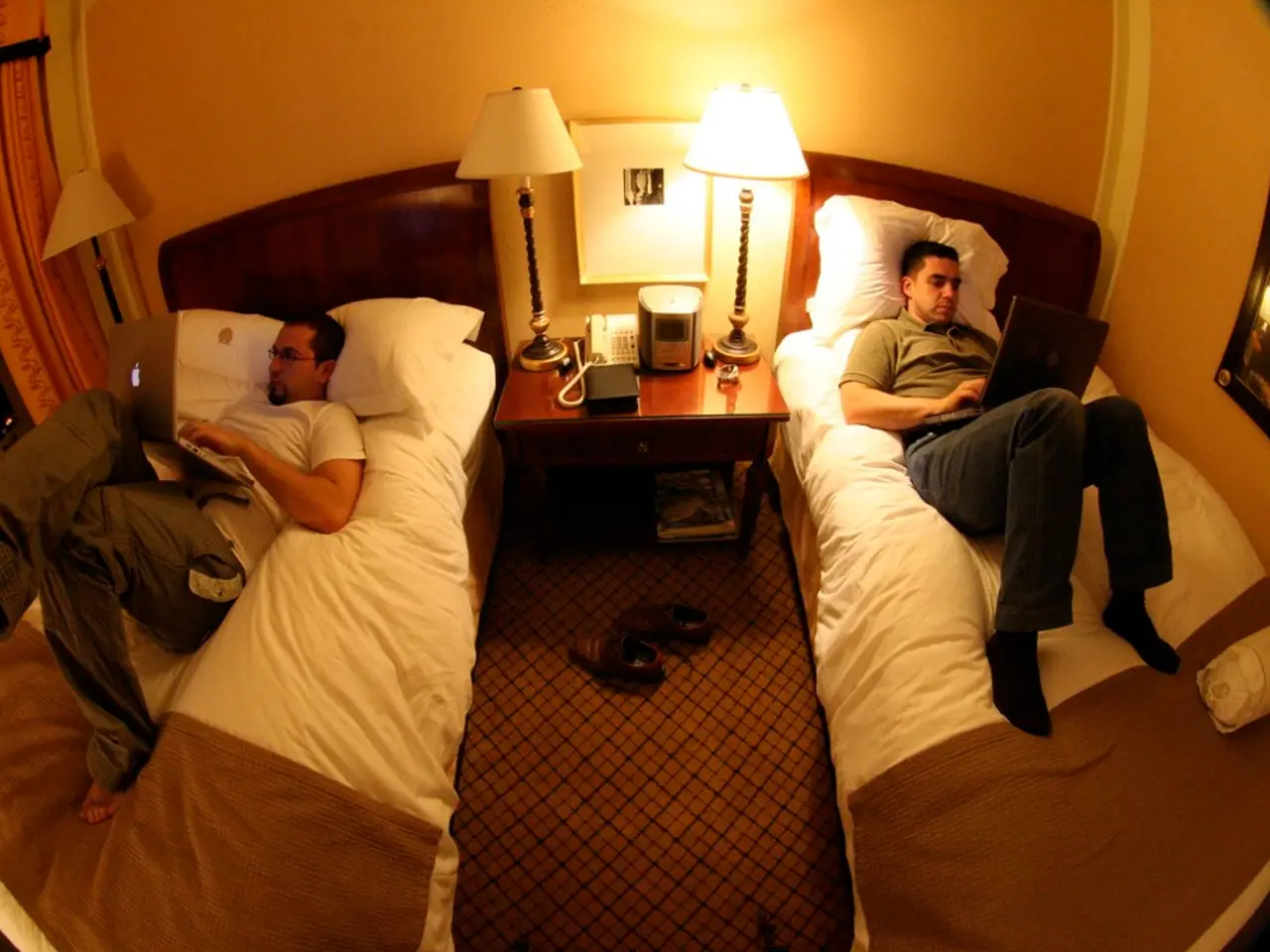Work from Bed Considerations for Your Comfort and Productivity
Working from the comfort of your bed might seem like a tempting idea, but it's a practice that comes with its own set of challenges. Chiropractor Andrew Bang, DC, a member of a chiropractic organisation, warns against this habit due to potential negative consequences.
Firstly, holding a tablet above your head and resting your elbows on either side of you while working from bed is not ideal. This position can lead to improper ergonomics, potentially causing more aches and pains. The best position to work from bed is on your back with a tablet, not a laptop. However, it's essential to avoid leaning against the headboard or wall, as this can overstretch the back side of your muscles.
Another concern is the impact on your sleep schedule. Working from bed can blur the lines between personal time and work, which might cause less productivity during the day. Moreover, looking at phones or devices before bed can delay sleep due to the blue light they emit. The bedroom should ideally be a relaxing environment that promotes sleep, not a workspace.
Blurring the lines between work and personal time might also lead to working late from bed, which can cause trouble falling asleep. To avoid this, it's advisable to set a timer to get up every 45 to 60 minutes to stretch. Moving often while working from bed, rolling to your side and switching sides regularly, can help maintain a neutral spine position, which is crucial for proper ergonomics.
It's also important to note that working from bed can make you less productive. The distractions at home and the comfort of the bed can easily divert your focus from work. Furthermore, mixing work with your bed can have a negative impact on sleep, disrupting your sleep schedule in the long run.
In conclusion, while working from bed might seem like a convenient option, it's crucial to consider the potential negative consequences. Chiropractor Andrew Bang, DC, advises maintaining proper ergonomics, taking regular breaks to stretch, and ensuring the bedroom remains a sanctuary for sleep. By doing so, you can maintain productivity and ensure a good night's rest.








